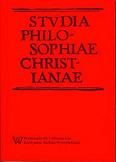"Common sense" jako uzasadnienie Berkeleyowskiej tezy immaterialistycznej
“Common sense” as an argument for the Berkeleyan immaterialistic thesis
Author(s): Dariusz KucharskiSubject(s): Philosophy
Published by: Wydawnictwo Naukowe Uniwersytetu Kardynała Stefana Wyszyńskiego w Warszawie
Keywords: common sense; material substance; sensory perception; representationism; presentationalism
Summary/Abstract: Writing his Treatise Concerning the Principles of Human Knowledge, George Berkeley was well aware that his thesis about non–existence of material substance would not be welcomed equally by learned and ordinary people. However, he was prepared for the expected discussion and tried to answer some objections in advance. He continued the fight against his opponents in his second work, Three Dialogues between Hylas and Philonous. The controversy embraced many topics and the aim of this paper is to present Berkeley’s attempt at showing his immaterialism as a position being in complete agreement with the world view (and cognition thereof) of so–called plain people. Berkeley considered himself a defender of their common sense, standing in opposition to the views of the learned. Berkeley maintained that the concept of material substance was an abstract idea invented by philosophers to explain the structure of the material world, but in his view the very idea was at the same time simply incomprehensible and redundant. He tried to persuade his readers that a ‘plain man’ neither uses nor needs the abstract idea of substance to understand and know the world he perceives. Berkeley points out some common–sensical beliefs and then puts forward arguments that his immaterialistic thesis is in full agreement with these beliefs. What is more, he argues that the views of his opponents stand in contradiction to these very common–sensical beliefs. To prove this, he identifies some metaphysical consequences of the representationalistic theory of perception. He says that in the world of this theory there exist only some material particles furnished with primary qualities but no objects from our ordinary sensory experience. According to this theory, we cannot trust our senses and that is why we must abandon it and adopt the position of presentationalism and common sense.
Journal: Studia Philosophiae Christianae
- Issue Year: 48/2012
- Issue No: 2
- Page Range: 49-63
- Page Count: 15
- Language: Polish

